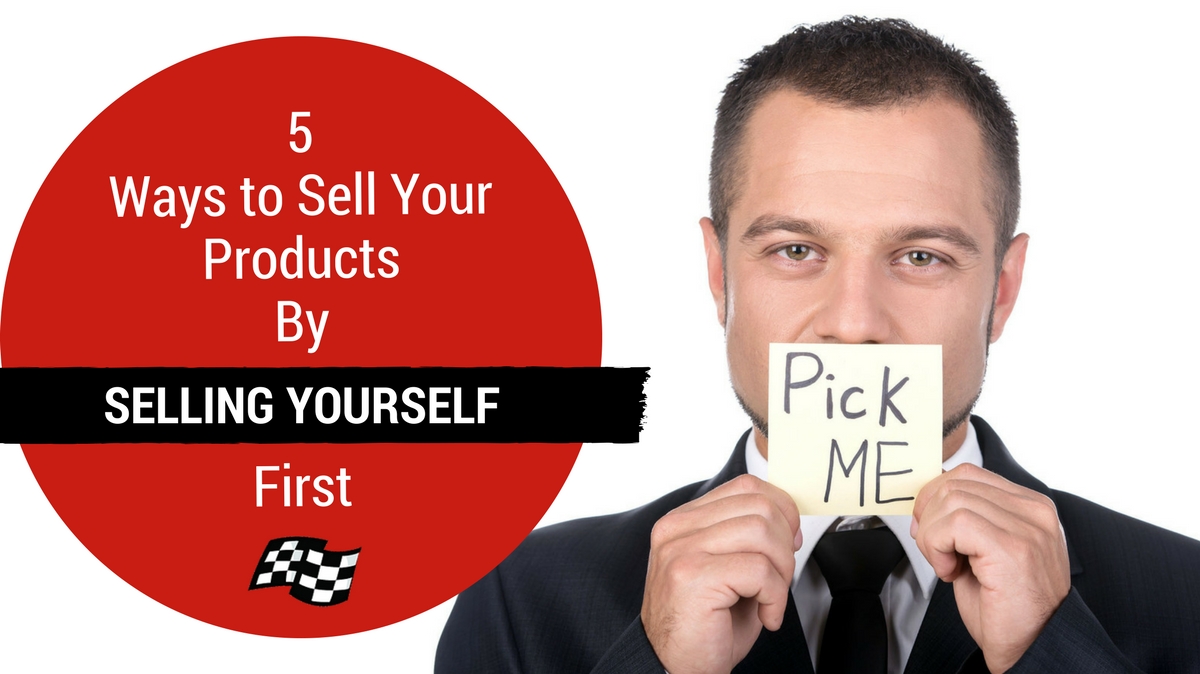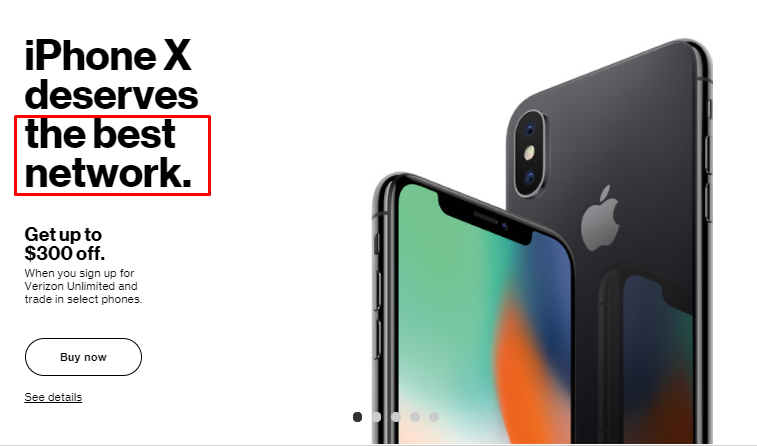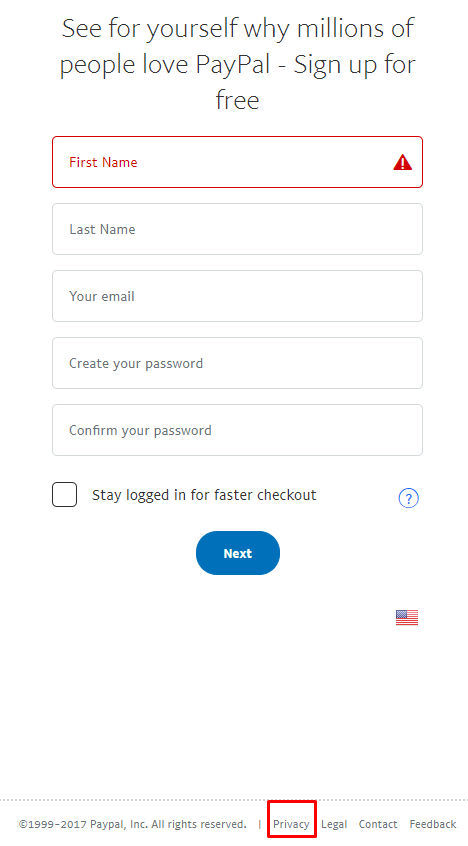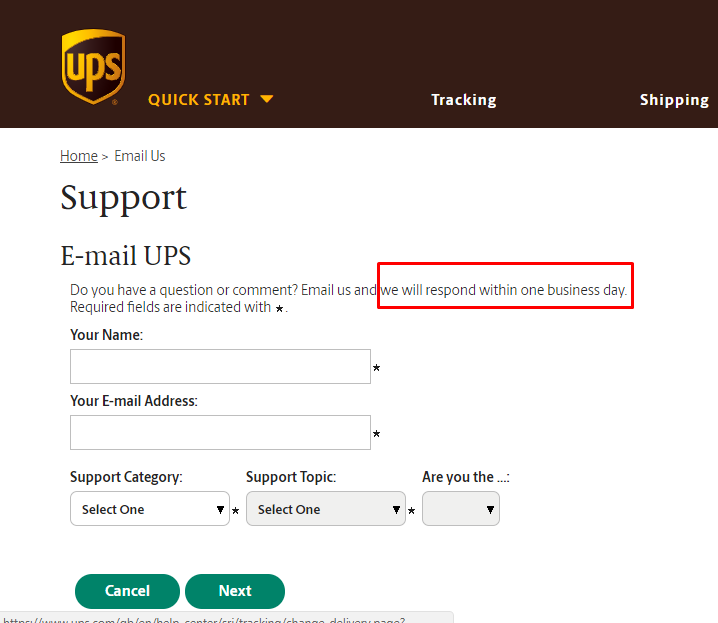
This post was originally published in 2014. Due to its popularity and evergreen material, we have updated it with some new examples. Enjoy!
When a visitor lands on your website, there are two questions they need answered:
1. How does this product or service benefit me?
and…
2. Why should I buy this product or service from you?
If your site does a good job of answering the first question, congratulations — you’re one step closer to making a sale. But that alone won’t necessarily close the deal. To push the visitor to commit, giving you money in hand, you must be able to answer the second question sufficiently as well.
Tons of businesses go wrong by focusing on the first question. They fill their pages with plenty of benefits, stats, and other figures all intended to get the sale, but they leave visitors still asking, “Why you?”
All things being equal, answering the first question above may be enough to convince some visitors to do business with you. However, on the web, all things are rarely equal. To be successful online, you have to do more than just being as good as the other guy. You have to be better than he is today… and better than he’ll be tomorrow. And, if your competitors are smart, they’ll be playing the same game. They’re looking at you not as a measurement of where they should be, but as a measurement of what they should surpass.
How do you convince someone to buy from you?
Ask yourself what makes you different from the dozens, or possibly even hundreds, of others out there doing the same thing. Can you make the case for yourself in a way that’s appealing? If you sell the same products or services as dozens of others online, can you convince your visitors that you have or do something special that others aren’t?
The trick to selling yourself is to do it without sounding like you’re doing it. Everything you do to sell yourself has to focus on what your customers need, want and value. Now, let’s look at five ways to use content to sell yourself to your visitors.
#1: Unique Value Proposition
Great businesses are not necessarily those that do something unique. They’re the ones that do something in a unique way. It doesn’t matter if you’re selling car batteries, clothing, consulting services, or flow meters; whatever you do, find an approach that is unique, and then make sure your unique value proposition (UVP) is expressed throughout your content.
In fact, the bulk of your content should revolve around your UVP. It’s not something you work into your content, it IS your content. Your UVP should be so ingrained in your business DNA that you can’t help but talk about your products or services without filtering that information through the whole idea of what makes you unique and different from everybody else.
Verizon Wireless gets a lot of flack for being expensive, but they are thought to have the best network. Why? Because nearly every piece of content and advertising states it. Even a simple promotion for the new iPhone on their site doesn’t fail to tout their UVP:

Selling products and services is pretty easy. For the most part, you have to realize that people searching and landing on your site already know they need your product or service. So that leaves selling yourself. But remember, visitors don’t want to hear all about you. They want you to talk about what’s valuable to them.
Every bit of content on your site must be about them. Even when you’re selling yourself, you’re not doing that to make yourself look better; you’re doing it so they understand what they get out of the relationship. I can tell you that I’m a national speaker, but what people want to hear is that I speak to business leaders all over the country, helping them grow their web presence and that I can do the same thing for them. You can tell people that you sell widgets, or you can tell them that you understand their problems and sell the solutions they need!
#2: Industry Authority
Are you an expert in your industry? Are you an authority that people look to for answers? You should be! Sure, you know what you’re talking about, but if no one else does then all that knowledge you have is going to waste. Start making your knowledge work for you, and your customers.
The easiest way to show your knowledge is through a blog. But that’s not the only way. Your knowledge should be littered throughout the content of your site, as you write product and service descriptions, values, and specs. Don’t rely on boilerplate information from other sources; instead demonstrate to your visitors that you have personal experience with everything you sell. With services, you’re not just offering a solution; you have to show that you know the right way to implement that solution.
For example, Shaw Floors product pages don’t just try to win customers over with slick language and beautiful photos. They provide specs, detailed installation instructions, maintenance information, and even videos explaining the composition of the flooring, such as this one:
You should also be looking for some expert citations that show your authority. This might mean writing articles for other industry sites or even building a library of tools, tips, and tricks that other sites would want to source. Look for unique ways to demonstrate your knowledge so your visitors have no doubt that you are their go-to company!
#3: Site Security
Most people think of site security as an IT issue. While you have to have the IT component in place, it’s the content that has to do the job of informing your visitors what the IT crew has done, specifically making sure they understand the ins and outs of how you keep their information secure. While security and privacy policy pages are not the most interesting pages to read, and for that matter rarely are, they are still critical to the process of convincing shoppers that you’re the one to work with.
Read or not, the presence of information on how your customer’s private data is handled can be a huge factor in winning customers over. Write easy to read and scannable security pages, and look for opportunities to link to them throughout your site (i.e., whenever someone is taking an action where this might be an issue). PayPal is smart to include the link to their privacy policies right under the signup form, assuring anyone who might have hesitations.
Most visitors who see links to the security pages will be satisfied by that alone. Others may click to the page to scan or read. Make your security pages easy to read so visitors can also have internal security about becoming your customer.
#4: Customer Reviews & Testimonials
Customer reviews are critical in answering the “why you?” question. Look for opportunities to have your customers provide feedback and testimonials about the value your company offers. This means giving your visitors something to brag about.
Nothing gets bragged about more than when you exceed customer expectations, and that all starts with good quality engagement. From the very first visit, the visitor must have an exceptional experience on your website. Great content, great visuals, great follow-up. When you take care of your customers beyond the norm, they’ll share it.
#5: Guarantees and Assurances
Not every business can provide iron-clad guarantees on products or services, but assurances can go a long, long way to making potential customers feel at ease when doing business with you. What can you do to provide these assurances? Find out and provide the information to your visitors.
Guarantees go beyond product and service performance. Sometimes it’s just a matter of customer service. Let visitors know you respond to all emails within 24 hours, like the example below from UPS, or that they’ll always get a live person on the phone on the first try. Or maybe if they have trouble using your product, you provide technical help to ensure they get the value of what they’ve ordered.

There are many ways to offer both assurances and guarantees that fall outside of what we typically think. Figure out what works for you and your business. Look for creative ways to delight your visitors and be sure to let them know how you do.
It’s Not All About You
Selling yourself and your product or service is a fundamental part of your business success – we know that. But you’ve got to know and practice selling yourself in a way that doesn’t scream, “It’s all about me!” Bring the value, the authenticity, and the know-how. Welcome your visitors to a website that addresses security and showcases an environment where customers are praising you for your quality. Don’t be afraid to make assurances. In short, what do you do that provides value to your audience? Find it and let your visitors know not how great you are, but how great what you offer will benefit them.
